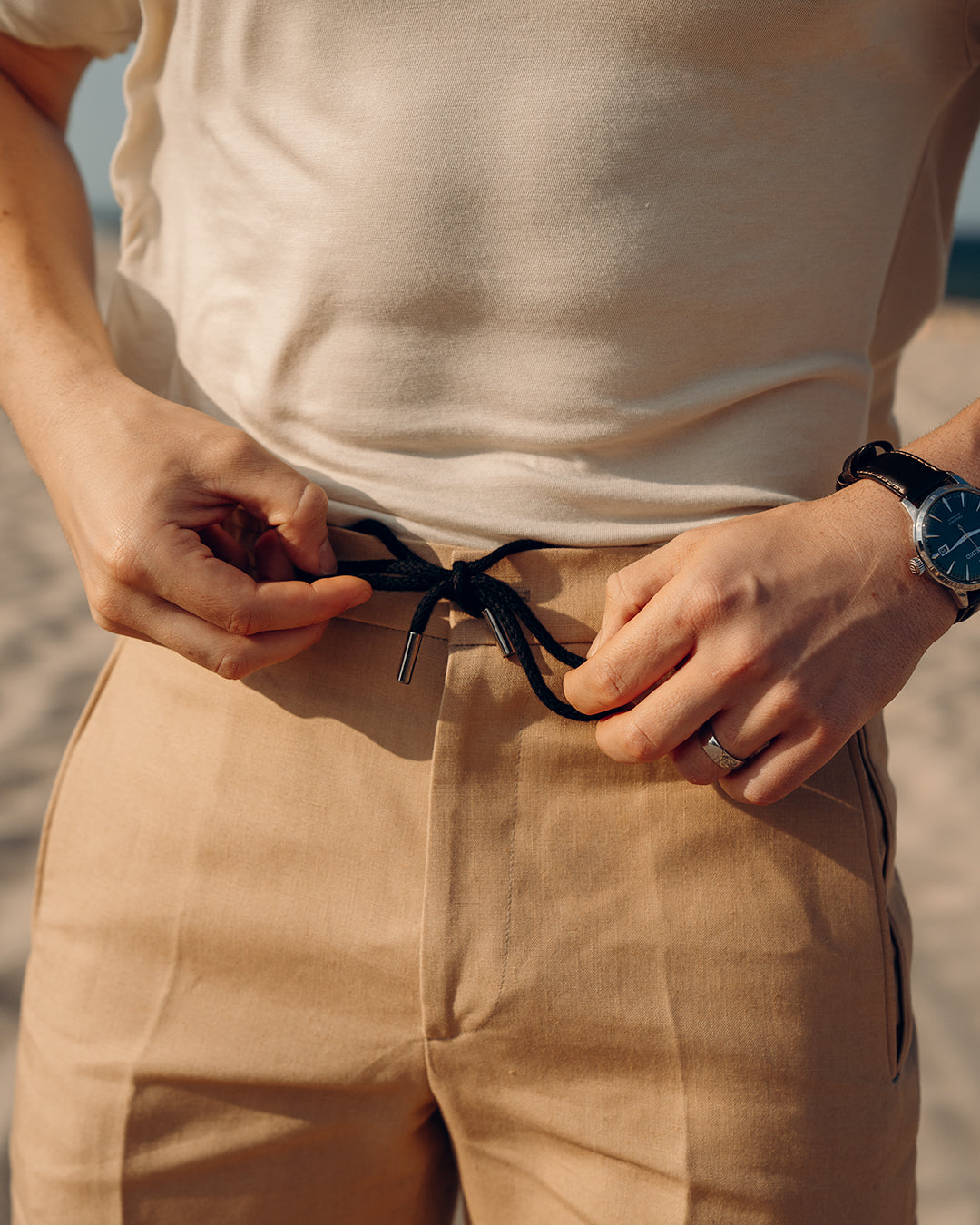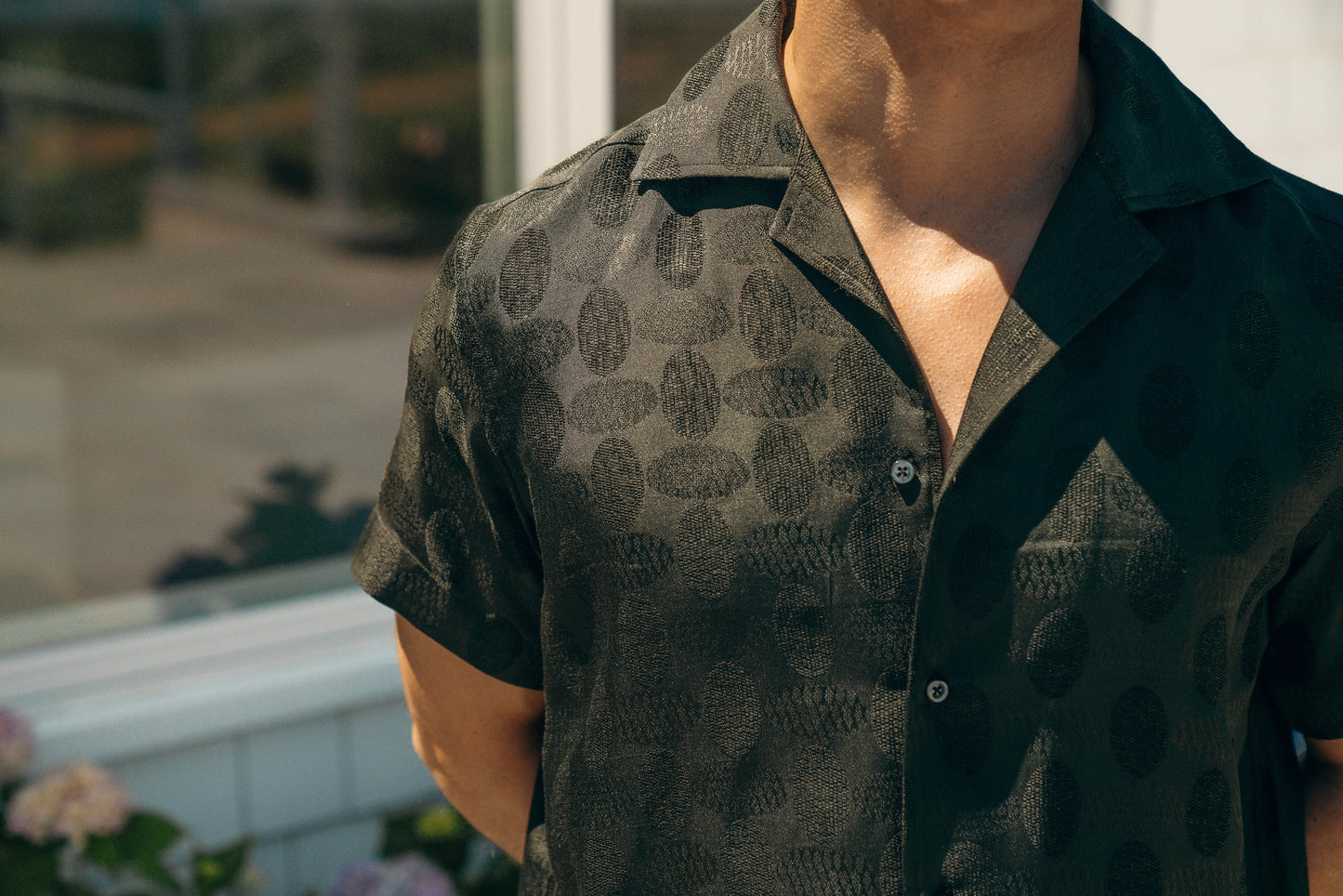At dinner last week, my wife and some of her friends were reminiscing about the era of the ‘Going Out Top’. This was in the salad days of our early 20’s, and the fashion of the day called for jeans and a specific kind of blouse that really only looked appropriate in a bar or club. The expectation was essentially that you’d have a closet full of 20-30 of these shirts, you’d wear them once or twice and rotate them out. It was a boom time for Forever 21 and their contemporaries, selling cheap, low quality shirts made to be disposable. Presumably there is a landfill full of them right now, underneath Eagles Super Bowl Champions T-Shirts.
Men have traditionally been lucky to avoid the abyss of this kind of trend-dependent consumerism, although menswear is certainly not immune to some of the worst instincts of fast fashion. But we’ve also had a reliable chorus, sometimes just faint chatter and sometimes more vocal, advocating for a more sensible way; quality over quantity.
And it’s not just that it’s better, in a Patagonia way, or a Marie Kondo way, to buy less. The central tenet of this philosophy of menswear comes down to the idea, the feeling, hell the actual FACT, that if you own things of quality, they age really well, and get even better over time.
When I graduated from High School (what an achievement, I know), my Dad took me to buy my first suit and pair of dress shoes. I guess before that I was able to skate by with an old navy blazer and moccasins, but now I was a man. Or, man adjacent. He was smart in two ways. First, we got a cheap suit, wisely predicting that for my suit purposes the next couple years, and the weight fluctuations of College Brought To You By Busch Light, cheap was just fine. And two, he didn’t skimp on the shoes. We got a pair of black Ferragamo loafers. I was stunned at the price. Holy shit, over $400 for SHOES?! But my Dad, and the salesman, assured me that if I took care of them, even slightly, they’d last decades and pay for themselves many times over.
Well, they were right. I still have those black loafers to this day. They've taken me from formal dances to job interviews, to office work and to weddings. With sporadic shines, steady shoe tree use, and a dust bag, they still look great, feel great, and have improved with time.
If you buy good things, they age well. Not just that, they’re better because they’re actually yours. Through some law of physics, you are not just the consumer anymore, you are the designer and the caretaker for something, if not meaningful, then at least something worth caring for. Clothing and shoes fit better, get softer, and essentially become bespoke garments.
Denim is the most obvious example. I don’t want to meet the man who believes brand new jeans are the best jeans. The more you wear them the more they become unique to you, telling a story of your days and nights in them. A Barbour waxed jacket undergoes a similar process of becoming more specific and therefore more desirable. No surprise both vintage jeans and vintage Barbours sell for way more than retail at vintage shops.
Even a dress shirt softens over time and can become a beloved weekend shirt.
Clothes are, after all, meant to be worn. What’s the point of a sweater that falls apart or pills after two wears? It’s not a costume. It’s clothing. And good clothing is made to be worn a lot, worn well, for a long time.
This kind of clothing is usually made with better materials and fabrics, by skilled artisans and in factories that treat employees humanely. So yes, better things cost more money. No getting around that. This stuff ain’t dirt cheap, because it shouldn’t be.
Is it inherently classist to advocate for more expensive, better made, high quality clothing? I guess so, and also I hope not? In the scheme of status symbols and wealth signifiers, I’d rather a pair of leather shoes or a thick sweater than a lot of the bullshit out there. A well-made article of clothing is pretty innocuous in the scheme of things. And it’ll make you feel better, and look better.
Spend more, spend less often. Let the good things age into great things.



